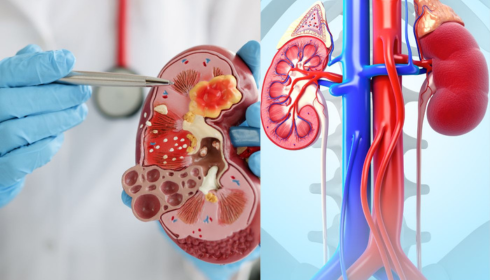Effective Kidney Stone Treatment Options for Long-Term Relief
Kidney stones are a common health issue that affect millions of people around the world. These hard mineral and salt deposits form inside the kidneys and can cause severe pain, urinary problems, and in some cases, lead to complications if not treated promptly. Understanding the causes, symptoms, and kidney stone treatment options can help individuals manage and prevent this painful condition effectively.
What Causes Kidney Stones?
Kidney stones are primarily formed when the urine becomes concentrated, allowing minerals to crystallize and stick together. Factors such as dehydration, a diet high in salt or protein, obesity, certain medical conditions, and family history contribute to the formation of kidney stones. Common types of stones include calcium oxalate, uric acid, struvite, and cystine stones.
Recognizing the Symptoms
Kidney stone symptoms can range from mild discomfort to intense pain, depending on the size and location of the stone. The most common symptoms include:
- Severe pain in the side, back, or lower abdomen
- Pain during urination
- Blood in the urine (hematuria)
- Frequent urge to urinate
- Nausea and vomiting
- Cloudy or foul-smelling urine
If you experience any of these symptoms, it is important to seek medical attention promptly to determine the appropriate treatment.
Diagnostic Procedures
To accurately diagnose kidney stones, doctors use various imaging techniques such as X-rays, ultrasound, or CT scans. A urine test may also be conducted to check for infections or crystals. Blood tests help identify high levels of certain minerals that could lead to stone formation.
Non-Surgical Treatment Options
For small stones that can pass naturally, non-surgical methods are usually recommended. These include:
- Hydration: Drinking plenty of fluids helps flush the stone through the urinary tract.
- Pain Management: Over-the-counter pain relievers like ibuprofen or acetaminophen can alleviate discomfort.
- Medical Therapy: Alpha blockers may be prescribed to relax the muscles in the ureter and help pass the stone more easily.
Doctors might also recommend dietary adjustments, such as reducing salt, oxalate-rich foods, and animal proteins to prevent recurrence.
Surgical and Advanced Treatments
When stones are too large to pass or cause complications, more invasive treatments are necessary:
- Extracorporeal Shock Wave Lithotripsy (ESWL): This non-invasive procedure uses sound waves to break up stones into smaller fragments that can be passed in the urine.
- Ureteroscopy: A thin tube is inserted through the urethra and bladder to remove or break up the stone.
- Percutaneous Nephrolithotomy (PCNL): In cases involving large or complex stones, this procedure involves a small incision in the back to access and remove the stone directly.
- Laser Lithotripsy: A laser fiber is used to break the stone into dust-like particles during ureteroscopy.
The choice of procedure depends on the size, type, and location of the kidney stone, as well as the patient’s overall health.
Preventing Kidney Stones
Prevention is key to avoiding future kidney stones. Here are some simple tips:
- Stay well-hydrated by drinking at least 2–3 liters of water daily.
- Maintain a balanced diet low in sodium and oxalate.
- Limit consumption of sugary beverages and alcohol.
- Include calcium-rich foods in your diet but avoid excessive supplements.
- Follow your doctor’s advice if you have a history of recurrent stones.
When to See a Specialist
If you have frequent kidney stones or underlying health issues contributing to stone formation, it’s essential to consult a urologist for kidney stone care. A specialist can develop a personalized plan to manage and prevent recurrence based on your medical history and lifestyle.
Conclusion
Kidney stone treatment has advanced significantly in recent years, offering patients a wide range of options for both pain relief and prevention. Whether through lifestyle changes, medication, or surgical procedures, timely intervention can ensure faster recovery and lower the risk of recurrence. If you’re experiencing symptoms or have a history of kidney stones, don’t delay in seeking professional medical advice.

